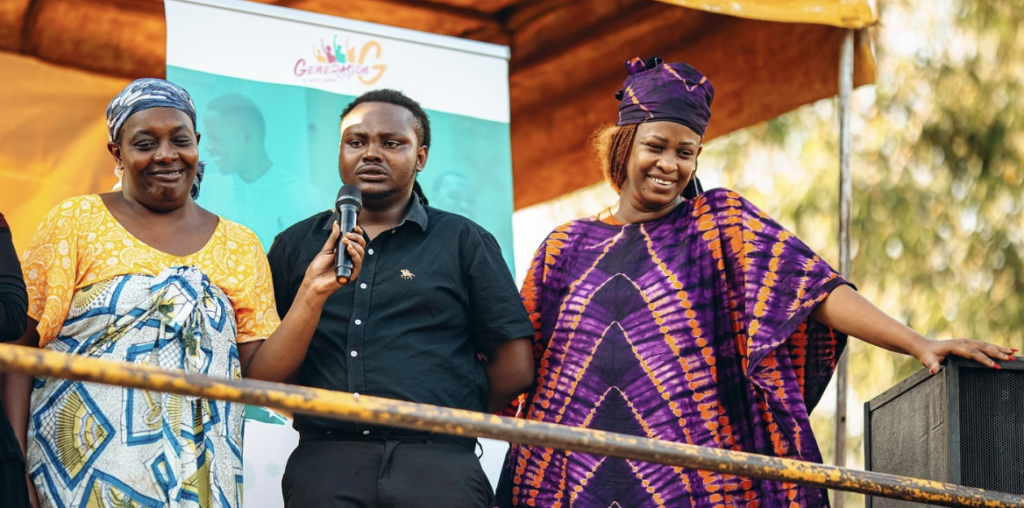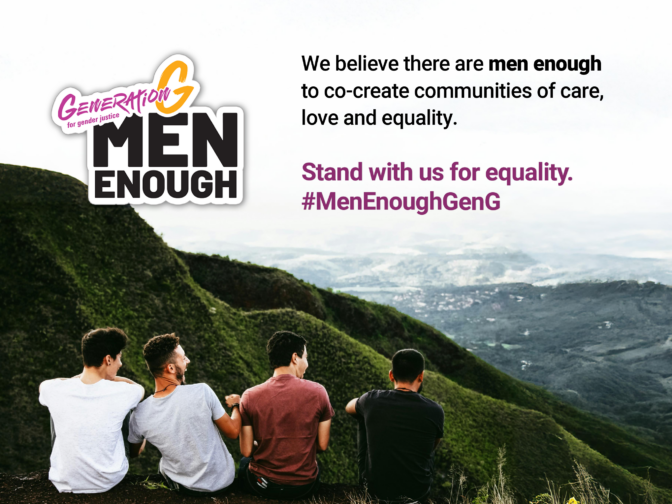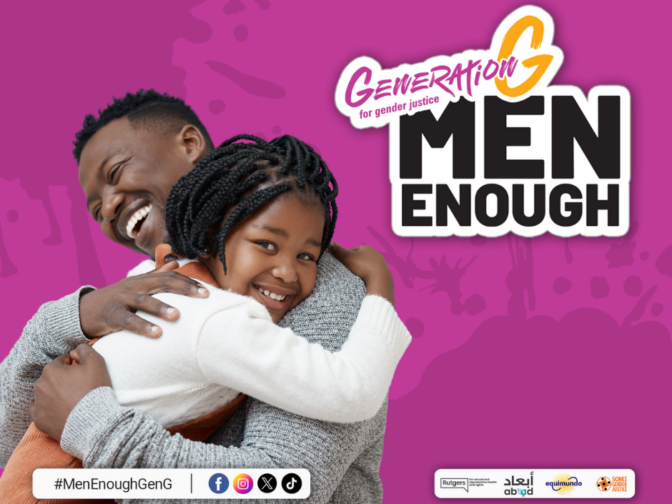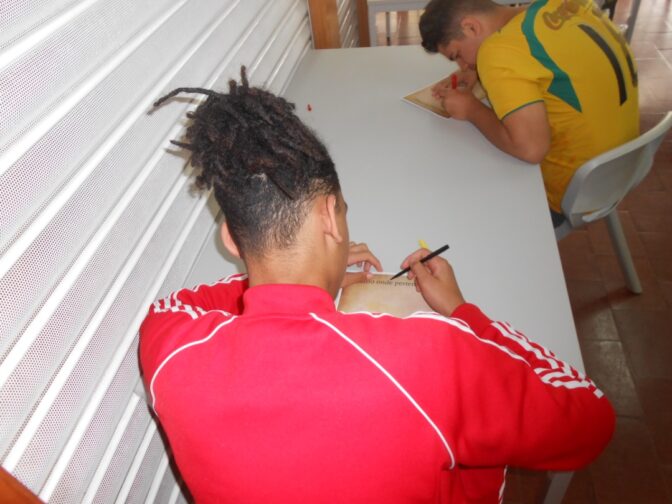As the Generation Gender (Gen G) Men Enough campaign concludes, it’s a moment to reflect on the incredible journey we’ve shared over the past few months. Together with 12 partner organizations across Morocco, South Africa, Rwanda and Uganda and online, the campaign set out to challenge harmful masculinity, redefine gender norms, promote care work, and encourage men to be active allies for gender justice. This blog provides a brief overview of the campaign’s successes and impact.
About the Men Enough Campaign
Led by the Generation Gender Partnership and implemented in Morocco, Rwanda, South Africa, and Uganda, the Men Enough campaign is about redefining our understanding of masculinities—moving beyond stereotypes of toughness and control to embrace empathy, introspection, and equality. It invites men everywhere to show up and lean in as positive role models for their families, communities, and society at large.
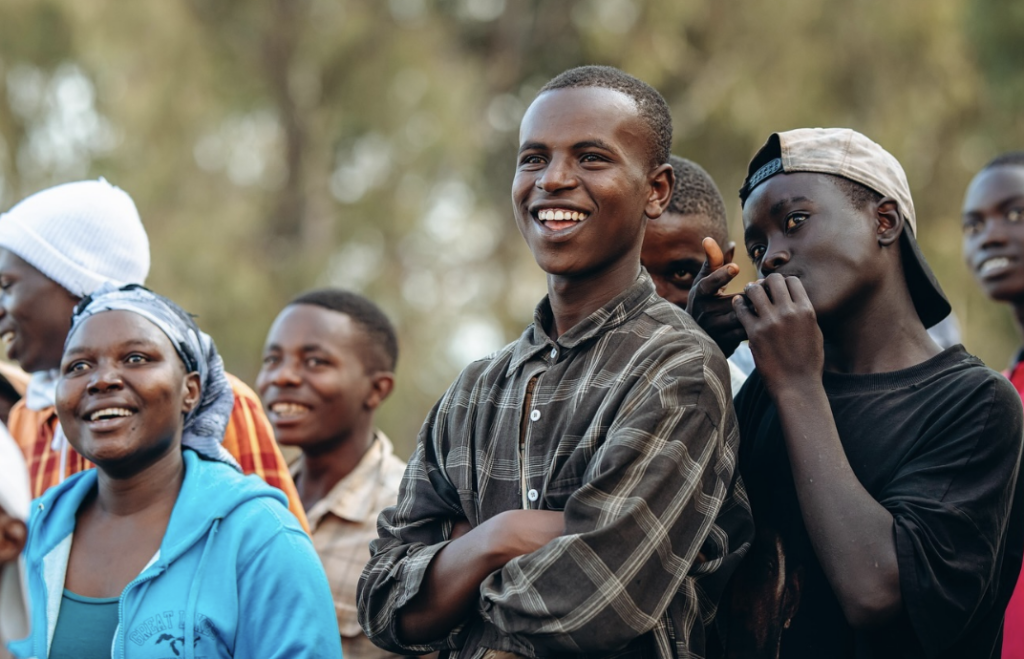
Campaign Strategy
The Men Enough Campaign was designed to inspire men to take active roles in advancing gender equality. While we know that lasting behavior change requires sustained efforts, the campaign successfully sparked meaningful national and community conversations, establishing a foundation for long-term transformation.
Guided by a global campaign framework, each country coalition adapted the campaign to resonate locally, respecting cultural nuances and leveraging pre-campaign research. This localized approach allowed partners to identify the most effective media for their context, including:
- Social media: using #MenEnoughGenG, partners shared live content, videos, images, and storytelling to engage online audiences.
- Traditional Media and Public Discourse: TV and radio segments, opinion pieces, and interviews reached those with limited internet access.
- Community Dialogues: Interactive forums, outreach events, and intergenerational dialogues created spaces for open discussion.
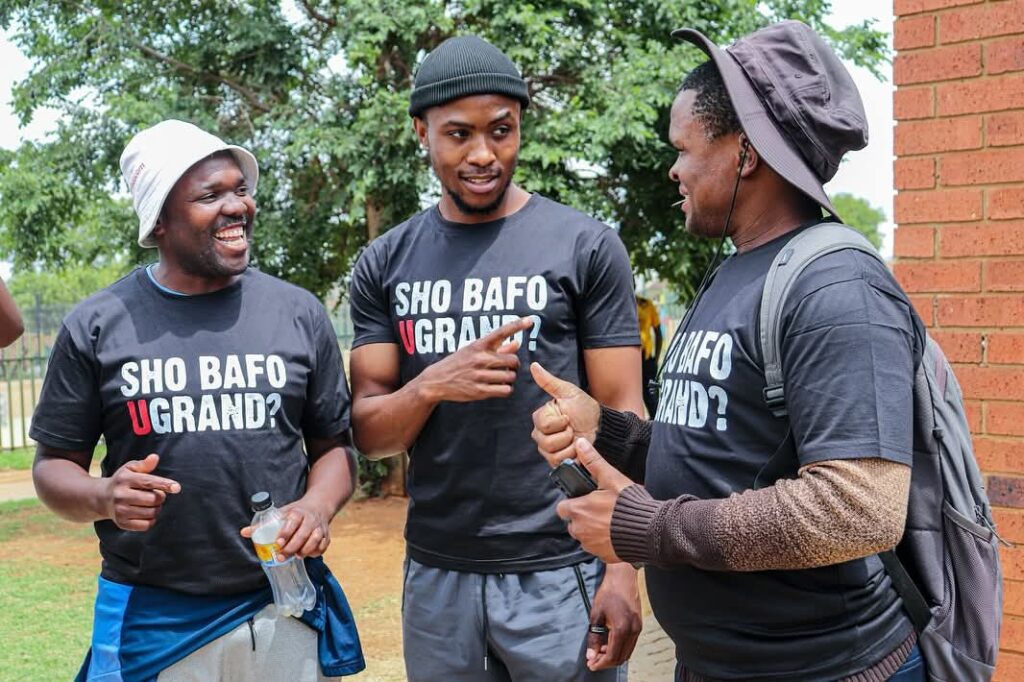
Campaign Successes
The campaign reached a wide and diverse audience, from rural communities engaged through outreach events to others reached through traditional media like radio, TV and print. The use of creative arts and storytelling proved especially impactful for young people, while collaborations with public influencers expanded reach and credibility. A total of 30 influencers were engaged, though this strategy also presented challenges around maintaining consistent and aligned messaging – a lesson for future initiatives.
Another key lesson was the value of consistent, interactive engagement, over one-time social media post engagement. Platforms like X and live podcasts helped create meaningful dialogue rather than passive consumption.
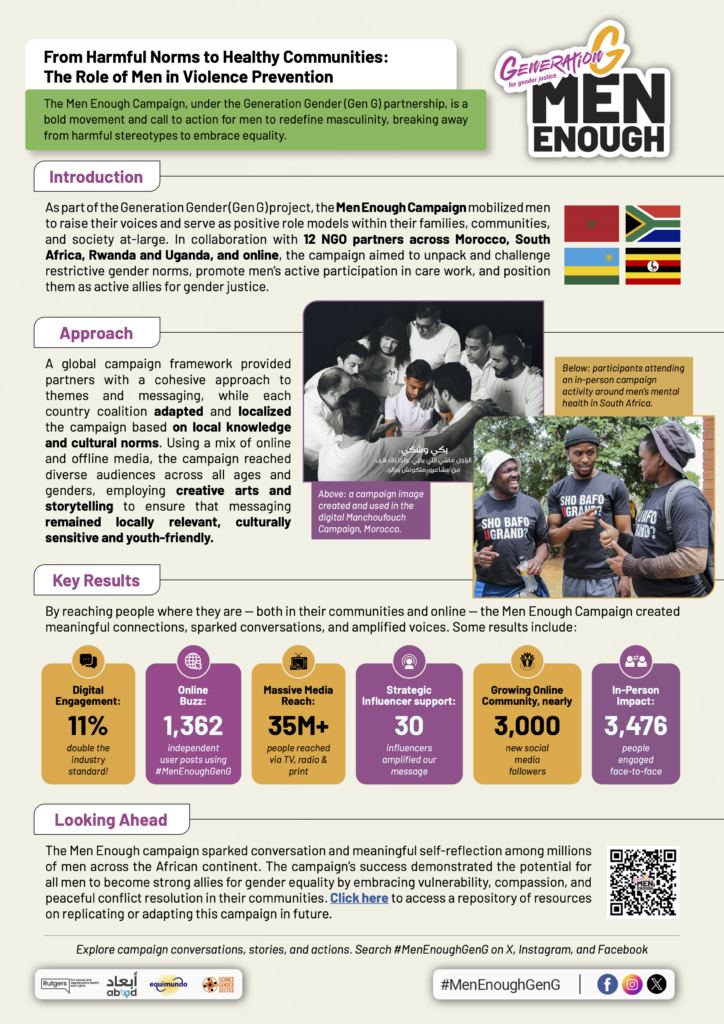
Key Results
Campaign Engagement: The campaign achieved an impressive 11% engagement rate across social media, meaning that over one-in-ten social media users who saw campaign posts engaged with it somehow (like, follow or share etc.). This far exceeded the expected 2%-5%, demonstrating the campaign’s strong resonance with audiences and its ability to inspire active engagement.
Campaign Reach: Through traditional media, the campaign reached an estimated 35 million people. Online, independently verified social media analytics also reveal that the campaign reached nearly 1.5 million video views across YouTube and TikTok and 746,000 people through webinars and podcasts.
New Social Media Followers: The campaign attracted nearly 3,000 new followers across implementing partners’ platforms, broadening their influence for future gender equality advocacy work.
Community Engagement: Nearly 3,500 people engaged in person through dialogues and outreach events, including innovative approaches like a “community caravan” that reached rural, less-connected communities.
Capacity Building: Country coalitions strengthened their skills through a series of trainings and workshops on crisis management, results framework, and campaign implementation.
Lessons Learned
Addressing masculinity and gender inequality surfaced both challenges and opportunities. Resistance to shifting deep-rooted norms was evident in some social media engagement, but the overall response was positive. By working closely with local organizations and community leaders, the campaign was able to continue to speak to its audiences’ interests , maximizing its impact. The diversity of the participating countries, spanning different regions of the African continent, providing valuable opportunities to learn from different cultural perspectives and adapt the campaign to diverse contexts.
The campaign’s success also demonstrated the power of traditional media – TV, radio, and print – reminding us not to overlook these platforms when aiming for broad and inclusive outreach.
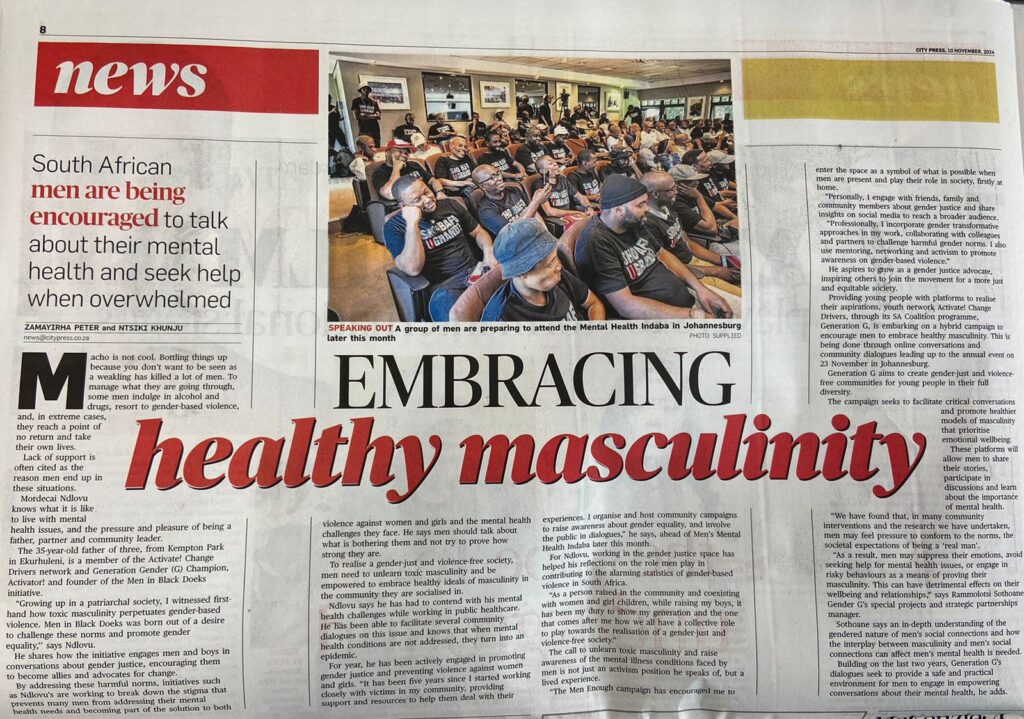
Looking Ahead
While the Men Enough campaign has officially wrapped, the movement for gender justice continues. Gen G remains committed to furthering this work through ongoing initiatives, partnerships and community engagement. There is significant potential to replicate or scale the campaign in new or existing contexts, leveraging the wealth of resources developed throughout this process.
Our reflections remind us of the potential within every man to be a strong ally for change – embracing vulnerability, compassion, and peaceful conflict resolution.
We are “Men Enough” to Love, Care, Respect, Think Differently, Speak Up, Listen, Ask, Seek Help and End Violence.
Follow and engage with #MenEnoughGenG Partners on these social media accounts and profiles:
Facebook: Activate Leadership
X / Twitter: AfriYAN Rwanda X Activate Change Drivers Reach a Hand
Instagram: Manchoufouch AfriYAN Rwanda Gen G Rw Instagram Activate Change Drivers Reach a Hand
YouTube: Reach a Hand Uganda
About Generation Gender (Gen G)
Since 2021, the Gen G partnership, funded by the Dutch Ministry of Foreign Affairs and globally coordinated by four organizations, has sought to galvanize and equip young people to address the root causes of gender inequality and foster meaningful change. Rutgers, Equimundo, ABAAD, and Sonke Gender Justice work towards this vision in collaboration with nineteen local civil society organizations that form country coalitions in Jordan, Lebanon, Indonesia, Morocco, Rwanda, South Africa, and Uganda.

